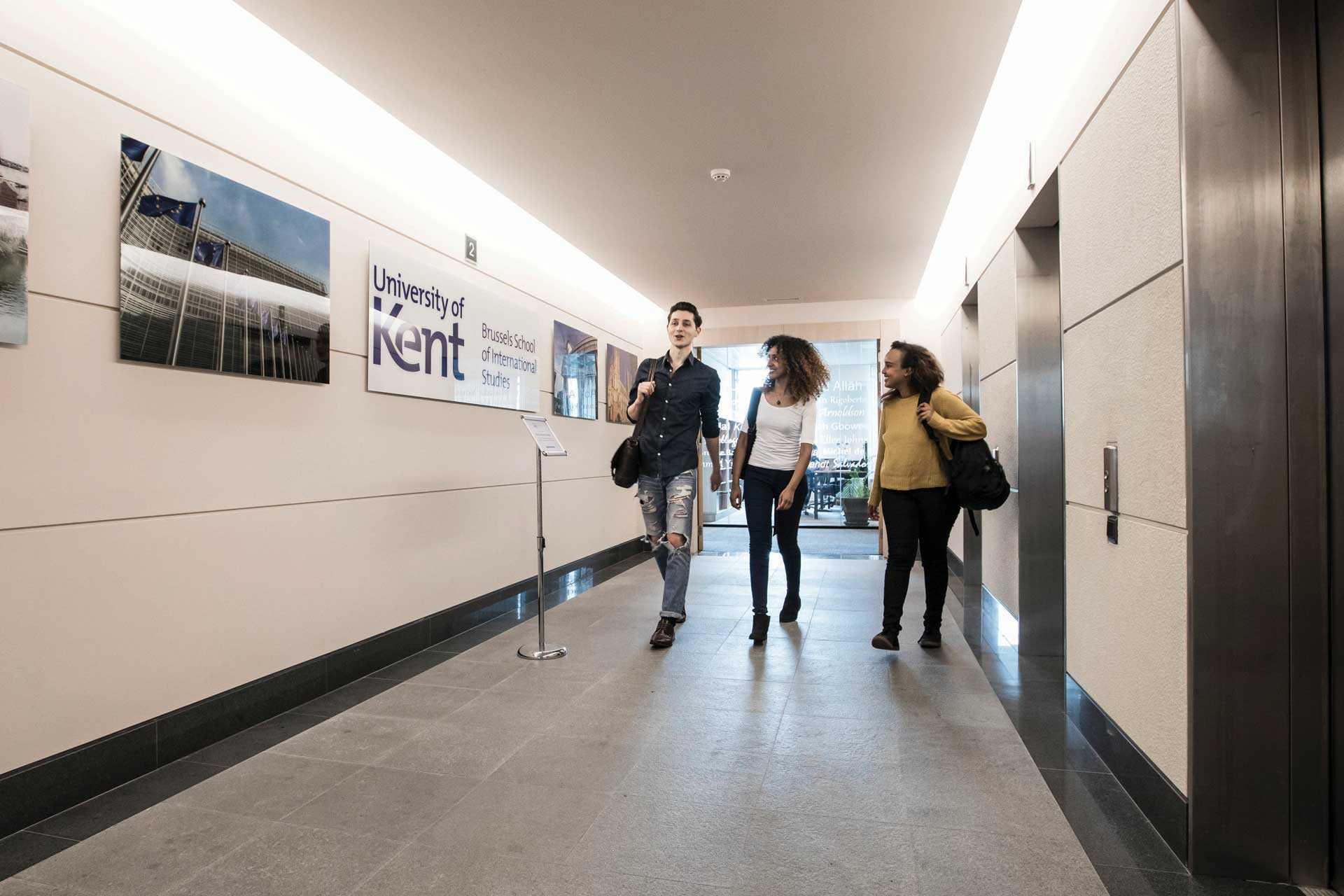This is an archived page and for reference purposes only. We are not accepting applications for this course for the 2023/24 academic year.
Please see our postgraduate course list for the upcoming academic year.
Taught in the critical tradition of Kent Law School, this programme examines the theory and practice of human rights law, international criminal law, humanitarian law, transitional justice, migration law and other fields in the context of different policy areas and various academic disciplines.
Students may choose modules spanning areas of law, conflict and migration to enhance their understanding of the complexities of human rights in today's world. From the migration crisis, human rights violations in conflict zones, crimes against humanity, war crimes or the work of the international criminal court. Studying this LLM in Brussels, provides excellent opportunities for students to apply their knowledge with conferences, seminars and lectures on the subject of human rights. Students may also find they can take up an internship with a human rights charity.
This LLM is particularly suited to those who currently work in, or hope to work in, international organisations, non-governmental organisations, international law firms and foreign affairs departments.
The programme is delivered at our Brussels School of International Studies (BSIS) in conjunction with our law school.
Standard and extended versions
The LLM is offered in both a standard version (90 ECTS credits) and an extended version (120 ECTS credits) and in each case students may take the programme with or without a secondary specialisation. Those on the extended version take more modules to gain extra credit.
To be awarded the standard LLM (90 ECTS), you must take:
- three modules from the list for Human Rights Law and
- three modules from the full list of modules offered at BSIS.
For the extended MA (120 ECTS), you must take:
- four modules from the list for Human Rights Law and
- five modules from the full list of modules offered at BSIS.
Modules
The following modules are offered to our current students on the LLM Human Rights Law programme. At BSIS, you have a wide range of optional modules to choose from and this can be within your chosen degree, or as part of a secondary specialisation (for more information on specialisations, please see below.) This list of modules is based on the current curriculum and may change year to year in response to new curriculum developments and innovation:
LW8431 - International Human Rights Law*
LW8461 - International Criminal Law
LW8610 - Law of Armed Conflict
LW8321 - European Union Migration Law
LW9001 - Critical International Migration Law
Modules marked with * are compulsory.
On this programme you must take a minimum of four law modules (standard) or five law modules (extended).
Specialisations
The LLM in Human Rights Law allows students to choose secondary areas of specialisation from the range of programmes offered at BSIS. This leads to the award of an LLM degree in, for example, 'Human Rights Law with International Migration'.
To include a secondary area of focus on the standard programme, you must choose three modules from the list for Human Rights Law, two modules from one of the programmes listed below (your secondary area of study) and one module from the full list of modules offered at BSIS.
For the extended programme, you must choose four modules from the list for Human Rights Law, a further three modules from one of the programmes listed below and two modules from the full list of modules offered at BSIS.
- with International Conflict and Security
- with International Development
- with International Law
- with International Migration
- with International Relations
- with Political Strategy and Communication
- with Foreign Policy (available as a secondary specialisation only)
On both the standard and extended programme, you must also submit a dissertation on a topic in Human Rights Law and complete the methodology module Fundamentals, Dissertation and Research.
Study support
Postgraduate resources
Students have access to excellent e-library facilities online via the Templeman library in Canterbury; inter-library loans within Belgium; 50,000 online journals are also available off-campus. Students also have outstanding access to libraries in Brussels, such as at our partner universities Vrije Universiteit Brussel and Université Libre de Bruxelles, the Royal Library of Belgium, among others. The School’s resources include a dedicated selection of more than 1,000 key texbooks on the subject of international affairs and law. In addition, postgraduate research students have their own designated room with computer terminals and access to wi-fi in all areas at the Brussels centre.
Dynamic publishing culture
Staff publish regularly and widely in journals, conference proceedings and books. The Brussels School produces its own journal, The Brussels Journal of International Studies, which was founded in 2003. Details of recently published books can be found within the staff research interests section.
Global Skills Award
All students registered for a taught Master's programme are eligible to apply for a place on our Global Skills Award Programme. The programme is designed to broaden your understanding of global issues and current affairs as well as to develop personal skills which will enhance your employability.





